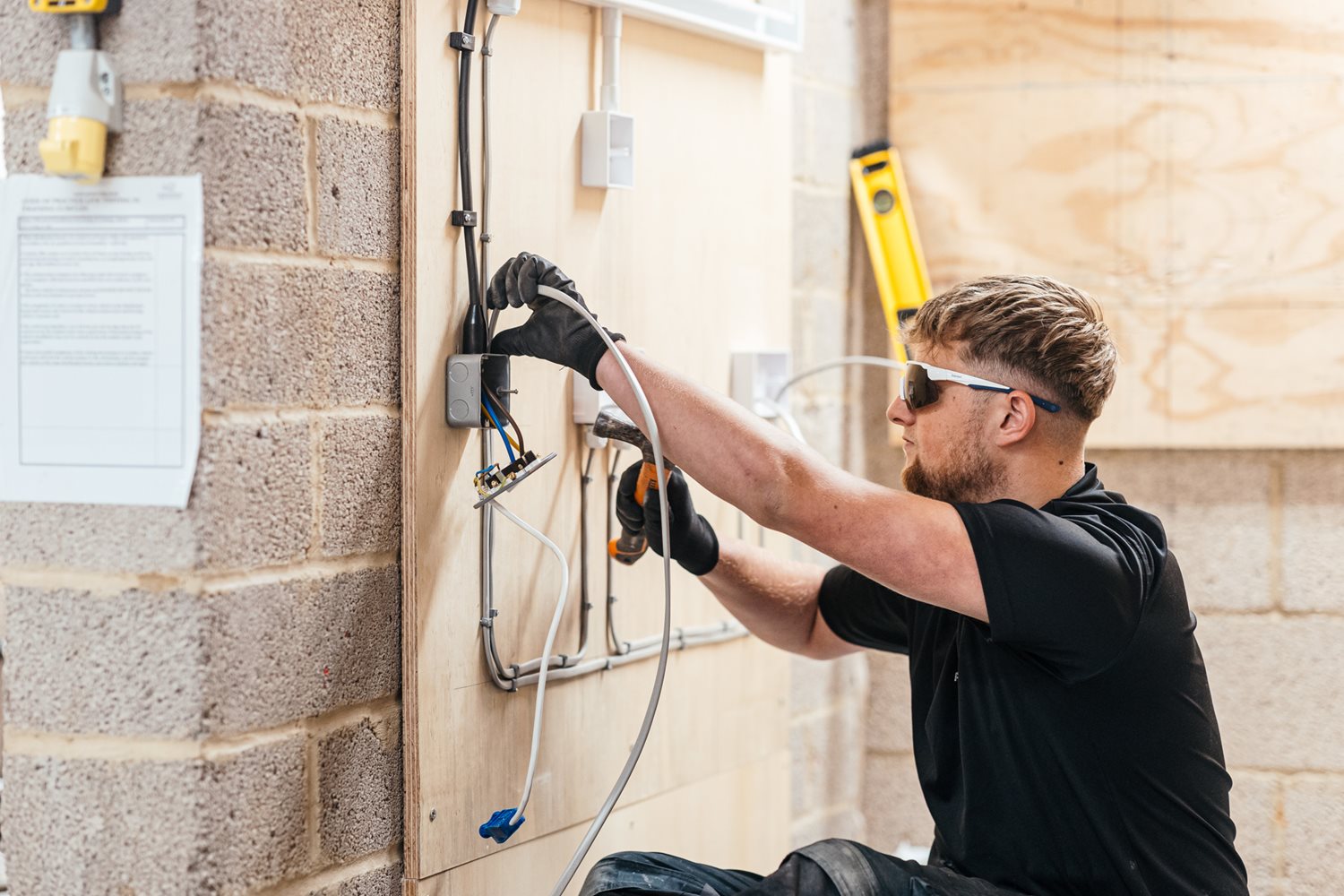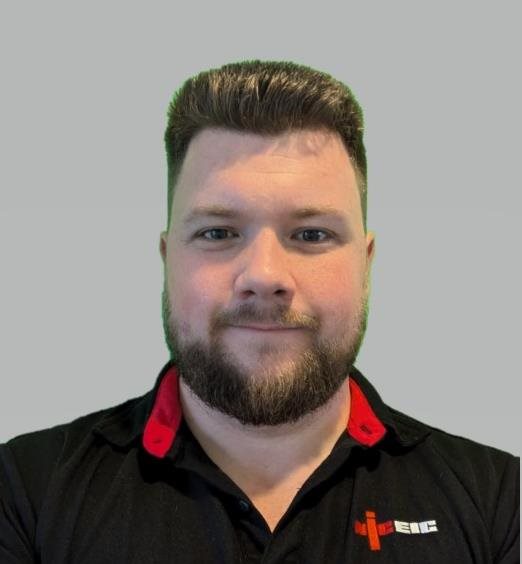As the UK grapples with a growing skills gap, NICEIC offers some top tips for those looking to secure an apprenticeship within the industry.
Whether you’re looking for an electrical apprenticeship, or you’re approaching the end of your studies and considering your next career steps, your CV is one of the most important tools you can have in your arsenal. Here’s a list of NICEIC’s top tips for whipping your CV into shape and ensuring it stands out from the rest.
With this in mind, make sure you’re using clear headings and subheadings, such as education, work experience, qualifications, and core skills, putting the most relevant information right at the top.
Essentially, you want to make sure your CV is as easy and pleasant to read as possible – and a pre-designed template can be the most straightforward way to achieve this. Tools like Microsoft Word and Canva both have free CV templates that you can download and populate with your own text. These will usually take care of all the formatting and spacing for you, allowing you to focus on the content.
Although creativity is an asset in many areas of life, you might want to rein it in a bit when it comes to your CV. Bright colours and funky fonts are unlikely to appeal to employers seeking a sensible, professional candidate, so swap these out for muted colour palettes and clear, professional fonts for a good first impression.
Take a look at the job description. If it says they want a team player who can work well with others, then it’s probably relevant to mention your place on the school rugby team. If a prospective employer is looking for someone with good time management, then it’s a great idea to mention the perfect attendance record you achieved in college or the part-time job you successfully held down while studying.
For example, always lead with your educational experience when applying for electrical apprenticeships, emphasising the fact that you have five GCSEs (including Maths and English), which is a must-have for most employers. When applying for a job as an electrician, the fact you have passed your apprenticeship and are now fully qualified should be the first thing an employer sees.
Your cover letter should show you fully understand the job description the employer has put forward, and demonstrate that you’ve done some research into the company, its culture, and its history. This means you can’t just send the same generic cover letter to each job or apprenticeship opportunity you apply for – each cover letter should be tailored to the job and company you’re applying to.
If you haven’t yet done any research into the company, this should be your top priority. It’s always obvious to employers which candidates have or haven’t familiarised themselves with the position they’re advertising. Additionally, if things go well and you do get invited in for an interview, you’re going to want to have as much information about the company as possible.
Over 50% of recruiters in the Reed study highlighted poor spelling and grammar as their number one application turn-off.
You shouldn’t just rely on a standard spell check on Microsoft Word or Chat GPT, either. These tools won’t necessarily pick up on subtle mistakes including words that are spelled correctly but used in the wrong context. Read your CV yourself, and read it again. Give it to a family member to read. And read it again!
We hope our top CV tips help you out on your apprenticeship or job search and wish you all the best of luck for the future!
1. Think about your formatting
The design and formatting of your CV make a huge difference. According to a study by Reed, 50% of recruiters say presenting information in a logical order is the most important factor for a successful CV, closely followed by good formatting and an appropriate length. Interestingly, a massive 91% of recruiters also favoured a two-page CV over a single pager.With this in mind, make sure you’re using clear headings and subheadings, such as education, work experience, qualifications, and core skills, putting the most relevant information right at the top.
Essentially, you want to make sure your CV is as easy and pleasant to read as possible – and a pre-designed template can be the most straightforward way to achieve this. Tools like Microsoft Word and Canva both have free CV templates that you can download and populate with your own text. These will usually take care of all the formatting and spacing for you, allowing you to focus on the content.
Although creativity is an asset in many areas of life, you might want to rein it in a bit when it comes to your CV. Bright colours and funky fonts are unlikely to appeal to employers seeking a sensible, professional candidate, so swap these out for muted colour palettes and clear, professional fonts for a good first impression.
2. Only include what’s relevant
While employers do want to know some personal details about you, such as volunteering activities or sporting triumphs, they probably don’t need to know that you came first in a spelling competition when you were eight years old or that you love playing video games in your spare time. And, according to the Reed study we mentioned earlier, they definitely don’t want to know that you “enjoy socialising with friends” – it’s the top pet-hate phrase for one third of recruiters!Take a look at the job description. If it says they want a team player who can work well with others, then it’s probably relevant to mention your place on the school rugby team. If a prospective employer is looking for someone with good time management, then it’s a great idea to mention the perfect attendance record you achieved in college or the part-time job you successfully held down while studying.
3. Tailor your CV
When applying for electrical apprenticeships, or looking for electrician jobs after qualifying, make sure your CV is tailored for this exact purpose. A CV you might use for a retail job will be considerably different to the CV you put forward for electrical work.For example, always lead with your educational experience when applying for electrical apprenticeships, emphasising the fact that you have five GCSEs (including Maths and English), which is a must-have for most employers. When applying for a job as an electrician, the fact you have passed your apprenticeship and are now fully qualified should be the first thing an employer sees.
4. Sell yourself
As important as it is to be concise and relevant, it’s equally important to shout about your accomplishments! When writing about previous experiences, a few tweaks to your wording can make a huge difference. For example, the things you had to do at work or school were ‘responsibilities’ you had to ‘manage’. If you have previous volunteering experience or other extra-curricular work, ensure you explain what this taught you and how it has helped you grow and develop.5. Attach a cover letter
Attaching a cover letter alongside your CV is your opportunity to show a prospective employer just how enthusiastic you are about the role, and why you, specifically, would be a good fit for the job. It might seem like a lot of effort, but it’s well worth doing; according to research from CV Genius, 85% of recruiters consider cover letters influential in their hiring decisions.Your cover letter should show you fully understand the job description the employer has put forward, and demonstrate that you’ve done some research into the company, its culture, and its history. This means you can’t just send the same generic cover letter to each job or apprenticeship opportunity you apply for – each cover letter should be tailored to the job and company you’re applying to.
If you haven’t yet done any research into the company, this should be your top priority. It’s always obvious to employers which candidates have or haven’t familiarised themselves with the position they’re advertising. Additionally, if things go well and you do get invited in for an interview, you’re going to want to have as much information about the company as possible.
6. Please use spell check!
It may seem obvious, but doing a spelling and grammar check on your CV before sending it to an employer could mean the difference between getting the position of your dreams and being rejected before you can even get an interview.Over 50% of recruiters in the Reed study highlighted poor spelling and grammar as their number one application turn-off.
You shouldn’t just rely on a standard spell check on Microsoft Word or Chat GPT, either. These tools won’t necessarily pick up on subtle mistakes including words that are spelled correctly but used in the wrong context. Read your CV yourself, and read it again. Give it to a family member to read. And read it again!
We hope our top CV tips help you out on your apprenticeship or job search and wish you all the best of luck for the future!






